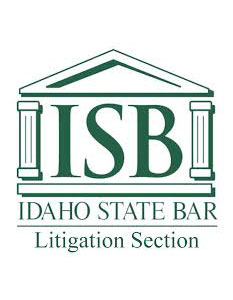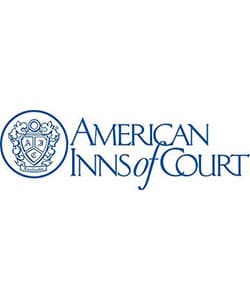In Idaho, the Dram Shop laws are designed to hold bars, vendors, and other establishments that serve alcohol accountable for the actions of their patrons when those actions result in harm to others. These laws play a critical role in regulating the responsibilities of establishments that serve alcohol, ensuring that they do so in a manner that does not contribute to dangerous or harmful behavior. However, the application of these laws is not always straightforward, and there are situations where a bar or vendor may not be held liable under Idaho’s Dram Shop laws. Understanding these exceptions is essential for both establishments and individuals who may be affected by incidents involving alcohol-related harm.
Understanding Idaho’s Dram Shop Laws
Dram Shop laws in Idaho create a legal framework within which bars and vendors are expected to operate when serving alcohol to patrons. These laws generally allow individuals who have been injured by an intoxicated person to sue the establishment that served the alcohol if the service of alcohol is found to have contributed to the incident that caused the injury. The intent behind these laws is to reduce the likelihood of alcohol-related accidents and injuries by placing a level of responsibility on those who serve alcohol. The scope of liability under these laws can be significant, making it essential for establishments to be aware of their legal obligations and the potential consequences of failing to adhere to them.
Exceptions to Liability Under Idaho Dram Shop Laws
While Idaho’s Dram Shop laws are comprehensive, there are circumstances where a bar or vendor may not be held liable for the actions of an intoxicated patron. One of the most notable exceptions is the so-called “safe harbor” provision. Under this provision, a bar or vendor may avoid liability if it can be demonstrated that the establishment took reasonable steps to prevent the intoxicated person from becoming overly intoxicated or engaging in dangerous behavior. This may include refusing to serve additional alcohol to a patron who appears to be intoxicated or taking steps to ensure that an intoxicated patron does not drive or engage in other potentially harmful activities. If an establishment can show that it made a genuine effort to prevent harm, it may be shielded from liability even if an incident occurs.
Another important exception to liability under Idaho’s Dram Shop laws arises in situations where the person who was injured by the intoxicated individual was also engaging in illegal or reckless behavior. For example, if an individual willingly gets into a car with a driver they know to be intoxicated and an accident occurs, the injured passenger may be found to have assumed the risk of harm, thereby limiting or eliminating the liability of the bar or vendor that served the alcohol. This concept, known as “assumption of risk,” can be a critical factor in determining whether a bar or vendor is held liable under Dram Shop laws.
Idaho’s Dram Shop laws also recognize the role of individual responsibility in alcohol-related incidents. In some cases, a bar or vendor may not be held liable if it can be shown that the intoxicated person’s actions were entirely unforeseeable or that the individual’s level of intoxication was not apparent at the time the alcohol was served. For example, if a person appears to be sober and exhibits no signs of intoxication when they are served alcohol, but later becomes highly intoxicated and causes harm, the establishment may argue that it could not have reasonably anticipated the subsequent behavior. In such cases, the focus shifts to the individual’s personal responsibility for their actions rather than the liability of the establishment.
The Role of Statutory Limitations in Dram Shop Liability
Statutory limitations also play a significant role in determining whether a bar or vendor may be liable under Idaho’s Dram Shop laws. Idaho law imposes strict requirements on the circumstances under which a claim can be brought against an establishment for serving alcohol. For instance, there are specific time limits within which a claim must be filed, known as the statute of limitations. If an injured party fails to bring a claim within this time frame, they may be barred from seeking compensation altogether, regardless of the merits of their case.
Furthermore, Idaho law requires that certain conditions be met before a bar or vendor can be held liable under Dram Shop laws. One of the key conditions is that the establishment must have served alcohol to a person who was visibly intoxicated or under the legal drinking age. If it cannot be proven that the person who was served alcohol met these criteria, the bar or vendor may not be held liable for any resulting harm. This requirement underscores the importance of evidence in Dram Shop cases, as the burden of proof rests on the injured party to demonstrate that the establishment violated the law by serving alcohol inappropriately.
The Impact of Comparative Fault on Liability
In Idaho, the concept of comparative fault can also influence whether a bar or vendor is held liable under Dram Shop laws. Comparative fault is a legal principle that allocates responsibility for an incident based on the degree of fault of each party involved. Under Idaho’s comparative fault system, if an injured party is found to be partially at fault for their own injuries, their ability to recover damages from a bar or vendor may be reduced proportionally. For example, if a court determines that the injured party was 30% at fault for an accident, their recovery from the bar or vendor may be reduced by 30%. This means that even if a bar or vendor is found to be partially liable under Dram Shop laws, their financial responsibility may be limited if the injured party’s own actions contributed to the incident.
Comparative fault is particularly relevant in cases where the injured party’s actions played a role in the events leading up to the incident. For instance, if an individual became intoxicated at multiple establishments before causing harm, each bar or vendor may argue that the other establishments share responsibility for the person’s level of intoxication. In such cases, the courts may divide liability among the establishments based on their respective contributions to the individual’s intoxication. This can complicate the process of determining liability and may result in reduced damages for the injured party.
The Importance of Legal Representation in Dram Shop Cases
Given the complexities and potential exceptions to liability under Idaho’s Dram Shop laws, it is essential for individuals involved in alcohol-related incidents to seek experienced legal representation. Dram Shop cases often involve intricate legal issues, including questions of evidence, statutory interpretation, and comparative fault. Without knowledgeable legal guidance, injured parties may struggle to navigate these complexities and may risk losing their ability to recover compensation.
For bars and vendors, understanding the nuances of Idaho’s Dram Shop laws is equally important. Establishments that serve alcohol must be vigilant in their practices to avoid liability, including training staff to recognize signs of intoxication and implementing policies to prevent over-service. Failure to adhere to these standards can result in significant legal and financial consequences, as well as damage to the establishment’s reputation.
Idaho’s Dram Shop laws serve a crucial function in promoting public safety by holding bars and vendors accountable for the responsible service of alcohol. However, there are specific situations where a bar or vendor may not be held liable under these laws, particularly when certain legal exceptions apply. Whether due to the safe harbor provision, the assumption of risk by an injured party, or the application of comparative fault, there are circumstances where liability may be limited or entirely avoided.
Rules of a Personal Injury Claim Choosing a Personal Injury AttorneyRelated Videos
For individuals who have been injured in alcohol-related incidents, understanding these exceptions is vital for assessing the potential for recovery. Likewise, bars and vendors must be aware of their legal obligations and the steps they can take to mitigate the risk of liability. Given the intricate nature of these cases, seeking legal advice is essential for anyone involved in a potential Dram Shop claim.
If you or a loved one has been affected by an incident involving alcohol, or if you are a bar or vendor seeking to understand your legal responsibilities, the experienced attorneys at Hepworth Holzer, LLP are here to help. Our firm has a deep understanding of Idaho’s Dram Shop laws and can provide the guidance and representation you need to navigate these complex legal matters. Contact Hepworth Holzer, LLP today to discuss your case and learn more about how we can assist you in achieving a fair and just outcome.










